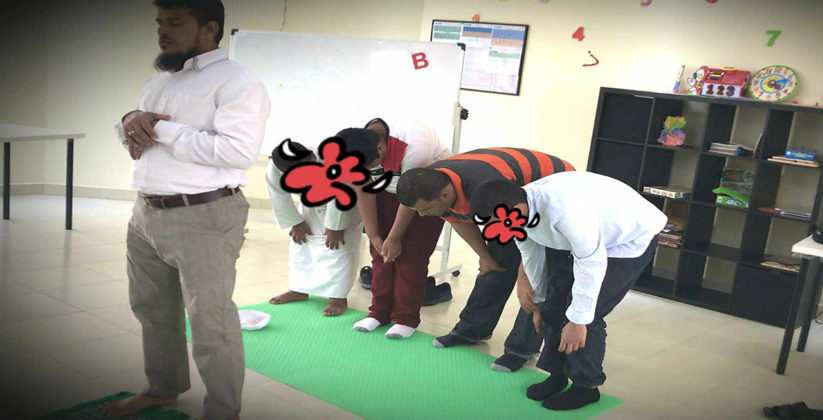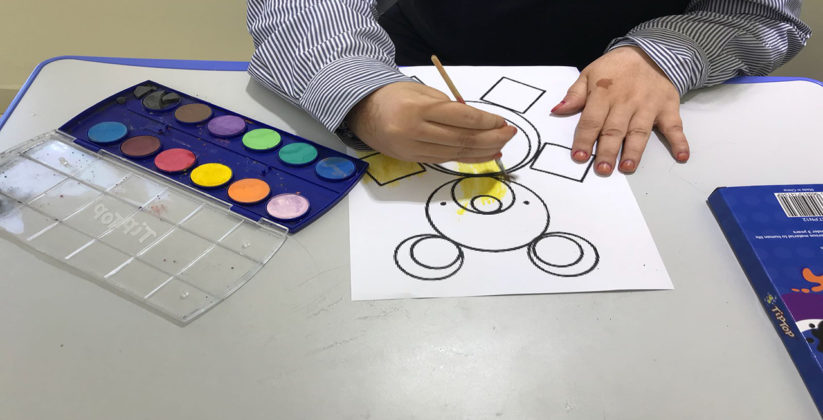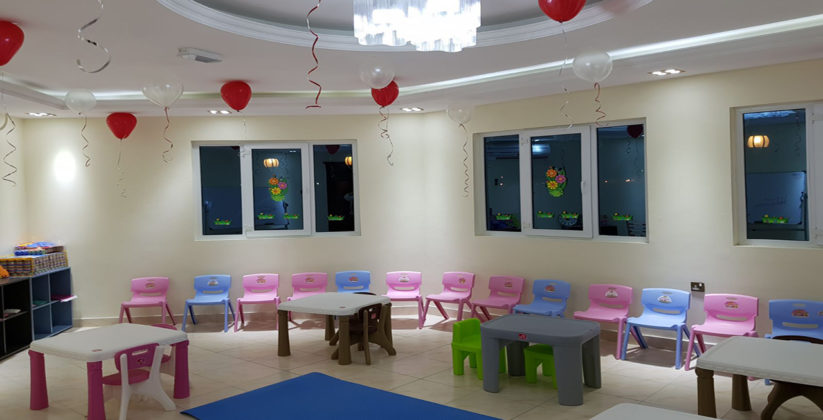Location
About Us
The Center of trust for the disabled provides comprehensive and integrated programs and services to all individuals with special needs through case studies, comprehensive evaluation and on the basis of individual plans in all areas that need to be developed and improved in their capacity and serving the available sections (Programs for early intervention - programs that include all disabilities for all ages of both sexes - programs for students with learning difficulties to develop educational skills and improve capabilities in all academic subjects - the center of trust is characterized by the provision of comprehensive integration services to private schools through a global, accredited policy).
The Center of trust for the disabled provides comprehensive and integrated programs and services to all individuals with special needs through case studies, comprehensive evaluation and on the basis of individual plans in all areas that need to be developed and improved in their capacity and serving the available sections (Programs for early intervention - programs that include all disabilities for all ages of both sexes.
Amenities
The building of the Center is a leased villa with 7 learning rooms (classes) in addition to a well-appointed and well-equipped integrity room, 2 reception rooms for management, as well as recreational outdoor spaces and security and safety facilities for the special needs category.
Center Location
The project's location is distinct in the Dahil District in Doha City Center, close to many private schools, many schools, government organizations, and commercial complexes, and is supported by many residents of many residential areas, In the end, the government has been using the government's power to impose a new law on the Palestinian people.
Project Future
Our project is geared toward making a lot of effort to provide the best services and we seek to expand in the future a center with services including education and medical services through a dedicated team of educators and therapists to provide all the needs of individuals with special needs in a high quality and to deliver everything new and effective in scope Persons with special needs.
Categories of services of the Center
- Children's early intervention problems and develop preschool skills.
- All cases of special needs (all ages of both sexes).
- Students struggle to learn and develop academic skills (evening periods) that include all materials.
- Students for the overall integration of private schools.
- Categories of Services of the Center.
- Early intervention Children develop basic problems and develop preschool skills.
- All situations of special needs.
- Students are structurist to learn and develop academic skills and include all materials.
- Private School Comprehensive Student Enrollment.
Programs and services of the center
Early intervention program
The importance of early intervention in pre-school childhood is that developing structured skills to guide the body, sit, stand, walk, run, balance, develop verbal and speech skills, control urine and acceptable food habits are critical to helping children adapt to the environment and develop their mental capacities The scientific research has proved beyond doubt that early intervention programs change children's behavior and this change in behavior may be represented by increasing the level of child autonomy, improving the child's ability to care for himself, and by creating new behavioral patterns that he was unable to perform. It develops its growth rates both cognitive, linguistic, kinesthetic or social.
This fact has led some private educators to emphasize that early intervention improves behavior and believe that most disabilities would not have occurred had children not been subjected to inappropriate environmental conditions to understand the situation and capacities of the child and to intervene with the appropriate follow-up and improvement.
The importance of early intervention is also linked to important facts:
- Early intervention is to prevent the delay of a child's abilities by developing and supporting growth.
- Early intervention is to prevent the delay of a child's abilities by developing and supporting growth.
- Early intervention takes place at a critical and sensitive stage in which learning is faster and easier than any previous age.
- Early intervention takes place at a critical and sensitive stage in which learning is faster and easier than any previous age.
Strategies for working with the program
The registration process is done through a preliminary assessment of the child's initial position and thus a comprehensive assessment of all developmental areas (focus and attention - knowledge - awareness - knowledge - knowledge - knowledge - memories, time and dimensions - critical - critical - critical - visual communication - language communication) Thus, an individual program with individual sessions in all areas of need is developed by regions of vulnerability and vulnerability and the choice of action strategies appropriate to their individual capacities.
Special need program
The Special needs Program seeks to develop and develop their skills and maximize their potential so that they can meet challenges, overcome all obstacles and provide a planned curriculum with their own individual education as needed and based on their gaps and weaknesses.
Program timing
- The program offers a morning time from 7:00 to 1:00 - evening time from 4:00 to 8:00.
- Full-day program from 7:00 to 4:00 hours
The difference between the ordinary curriculum and the curriculum in special education:
The general curricula prepared for ordinary students are prepared in advance by specialized committees to suit a particular age and school stage and not a particular individual, whereas the curriculum in special education is not prepared in advance and is prepared for a particular child. In light of the results of measuring its current level of performance in terms of its strengths and weaknesses, there is no general curriculum for students with special needs. It is also the main purpose of the curriculum, which is derived from the educational goals that form the basis of the individual curriculum for each child with special needs and thus the curriculum in special education is not different from the general curriculum prepared for ordinary students, because it contains the same elements Main referred to ( objectives, content, methods and evaluation )
Strategies for building the Platform for Children with Special needs:
The model presented by '' and '1981'' is considered to be accepted and approved in the fields of private education and passes through five main steps:
1. Learn about the entered behavior: This means knowing the characteristics of these children, for example, those with severe mental disabilities, who are different in need from children with moderate or minor mental disabilities, and also for those with low learning disabilities who are different in need from those with learning difficulties, and therefore we need preliminary information to move forward with the construction of the curriculum.
2. Current performance measurement: Objectives for determining the current level of performance:
- To make decisions regarding the dimensions of the individual educational program.
- Children have power and should not refuse to educate any child.
- Identify the student's associated disabilities and how they affect student participation in the course.
- Prioritize teaching and appropriate teaching methods and methods.
- Identify and select the appropriate isolations for use with the student.
- Determine expected levels of performance based on student capabilities.
- Judge the degree of quality a student can achieve in performing the task.
- Get the most information about student performance and performance style.
- Give room to work on changing the environment, behavior and student self-perception.
Elements of the curriculum in special education
Its main areas are three axes:
A. Developmental areas B. Specific skill areas C. Areas of enrichment and consolidation.
Most courses classify educational activities according to the developmental field and the main developmental areas that focus on them:
1. Big and precise motor skills
2. Language skills of expressive and future
3. Emotional social skills
4. Cognitive skills
5. .Self-care skills
Learning difficulties program
This is a situation that results in a continuous decline in the academic achievement of a pupil compared to his or her classmates, not because of visual, kinesthetic, or auditory impairment, mental retardation, psychological instability, or family and social conditions. The decline in one or more different learning skills such as basic reading, writing, mathematical skills, or intellectual processes (memory, highlight, and focus), speech ability, listening, cognition, and thinking.
Types of learning struggles
Learning difficulties have several types of:
Developmental learning difficulties
These are related to the cognitive and mental processes and to the brain functions a child needs in his or her academic achievement, and these difficulties may be caused by functional disorders of the central nervous system, which also affect pre-academic processes such as memory, thinking, language, attention, and awareness. It is based on the academic attainment of the child and is the most important foundation for cognitive and mental activity.
Limited learning difficulties
Difficulties in academic cognitive performance, these are largely associated with developmental learning difficulties, and manifestations of academic learning difficulties are:
- Difficulty computation: This difficulty affects an individual's ability to acquire computational skills, students with this difficulty have a lack of auditory or visual perception of numbers, difficulties in understanding the relationship between numbers, and difficulty in performing calculations.
- Movement difficulties: These difficulties include sensational disorder such as equilibrium, and compatibility between sight and hand performance, i.e. student inability to control and coordinate simple movements.
- Hard to read: Students with this difficulty show low literacy skills, and these difficulties often drive students away from reading, writing, and trying to learn material from a heart, in order to hide problems with reading difficulties. One aspect of reading difficulties is: Difficulties in understanding readers, difficulty of spelling, and lack of accuracy in reading.
- Attention and focus Disorders: Disturbances show attention and focus through distraction and its great sensitivity to external influences.
Address learning difficulties
- Parents understand the problem and collaborate with all teachers who specialize in building a treatment program for these children away from psychological stress.
- Plan a special education program for each child based on the type of difficulty they experience.
- Use learning strategies that are appropriate to student capacities
- Early intervention and diagnosis by specialist doctors.
Special Needs Integration Program
In current times, pedagogy has been interested in providing for all types of people in the society, for it is not the only recluse to ordinary individuals as it used to be in the past and the pedagogical and educational efforts are now directed towards all youth regardless of their intellectual levels and abilities.
It is undoubted that education is a human right despite the individual abilities and talents, and it has been stated clearly in the 1994 UNESCO world conference that special needs students must be granted equal educational opportunities in parallel to their ordinary peers in public schools.
In light of the previous high human principles, it has become an obligation to provide special needs with the right educational and pedagogical opportunities, career alternatives, and decent social life.
What is the Trust Centre Integration Program?
The program, in collaboration with the public schools in the State of Qatar that have special needs departments, should include:
The Trust Centre Integration Program is a comprehensive, educational programme that believes in the individual differences, and in the fact that each person has his special abilities and is capable of learning according to his particularly distinguished learning style despite the individual differences; the strategies of the integration program include:
Preparation of the staff and electing the most suitable members by the Trust Centre.
- The readiness of the principal and the staff to apply for the integration program.
- Availability of acceptance and harmony amongst the management team.
- Availability of a suitable educational building.
- Availability of educational services and activities.
- The collaboration between the families and the staff to make the program successfully implemented.
- Elevated cultural and social levels in the school environment.
- Appropriate willingness of the instructors to implement the program.
- Readiness to join the preparation courses designed to help to complete the integration program.
- The preparation of ordinary students to accept the different individual differences in order to successfully accomplish the program goals.
- The preparation of the ordinary students’ parents, in addition to providing a comprehensive illustration of the human, educational, psychological and social goals of the program.
The creation of appropriately mixed groups in order to combine both ordinary and special students via the school management.
Planning and executing the appropriate strategies by the Trust Centre (educational evaluation - individualistic educational program - classroom management rules - educational environment - classroom planning - plans and schedules - entertainment - appropriate syllabi strategies).
Syllabus modification - when necessary.
Preparation of classroom instructors to successfully collaborate with Trust Centre assistant instructors.
There are several standards that should be fulfilled in order to integrate the special needs children:
- The special needs student should belong to the same intellectual level in which he’s going to be implemented.
- The special needs student should be capable of self-care.
- The special needs student should be chosen by a special committee in order to evaluate his capability of coping with the program.
- The special needs student must not be intensely handicapped nor has multiple disabilities.
- The special needs student should be prepared to work in large groups whilst learning.
Classroom mechanisms include:
A. The instructor should continuously observe the special needs student/s whilst the integrated groups are functioning.
B. The special needs student should be motivated whilst in class through:
- stopping inappropriate behaviors.
- encouraging the student to follow verbal instructions.
- encouraging the student to carry out his share of work.
- encouraging the student to sit appropriately in order to
- increase attention and focus within the class.
C. The instructor should observe and consider the student responses that allude to the following of classroom orders and instructions.
D. The instructor should use the motivation strategy that grants the student some time to provide an answer - up to 15 seconds.
E. The staff should use the reinforcement strategy with the special needs students.
F. The instructor should invoke social interaction as much as possible.
G. The individualistic practice of some individual talents for the special needs students via the special resources room.
H. The integration team includes:
- Family and parents.
- Special education staff (assistant instructor - the center director - pronunciation and discourse specialist - behavior management specialist - special education instructor).
- Classroom instructors.
- The school management.
Tags: trust eductional centre for special needs address, trust eductional centre for special needs doha, i need to know about trust eductional centre for special needs, trust eductional centre for special needs qatar, trust eductional centre for special needs doha qatar, location of trust eductional centre for special needs in qatar,
Keywords: Trust Eductional Centre For Special Needs Nursery, Trust Eductional Centre For Special Needs Nursery Address, Trust Eductional Centre For Special Needs Nursery doha , Trust Eductional Centre For Special Needs Nursery qatar , Trust Eductional Centre For Special Needs Nursery doha qatar ,



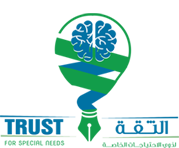

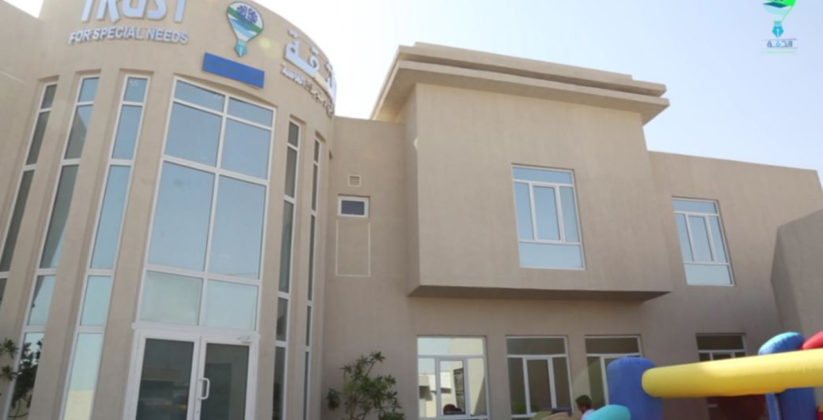
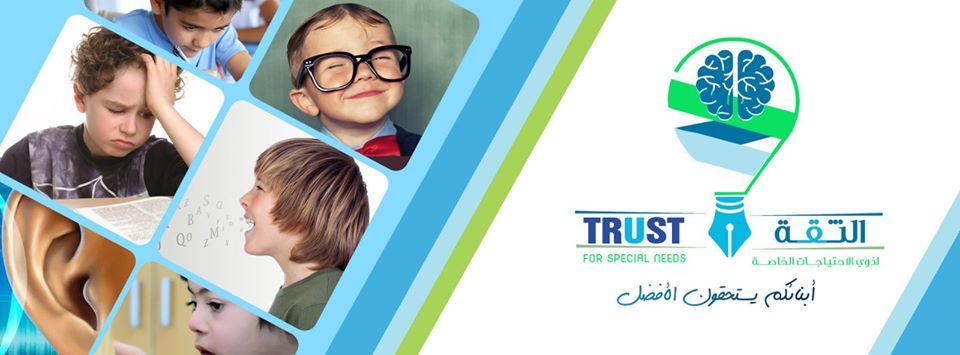
.jpg)
